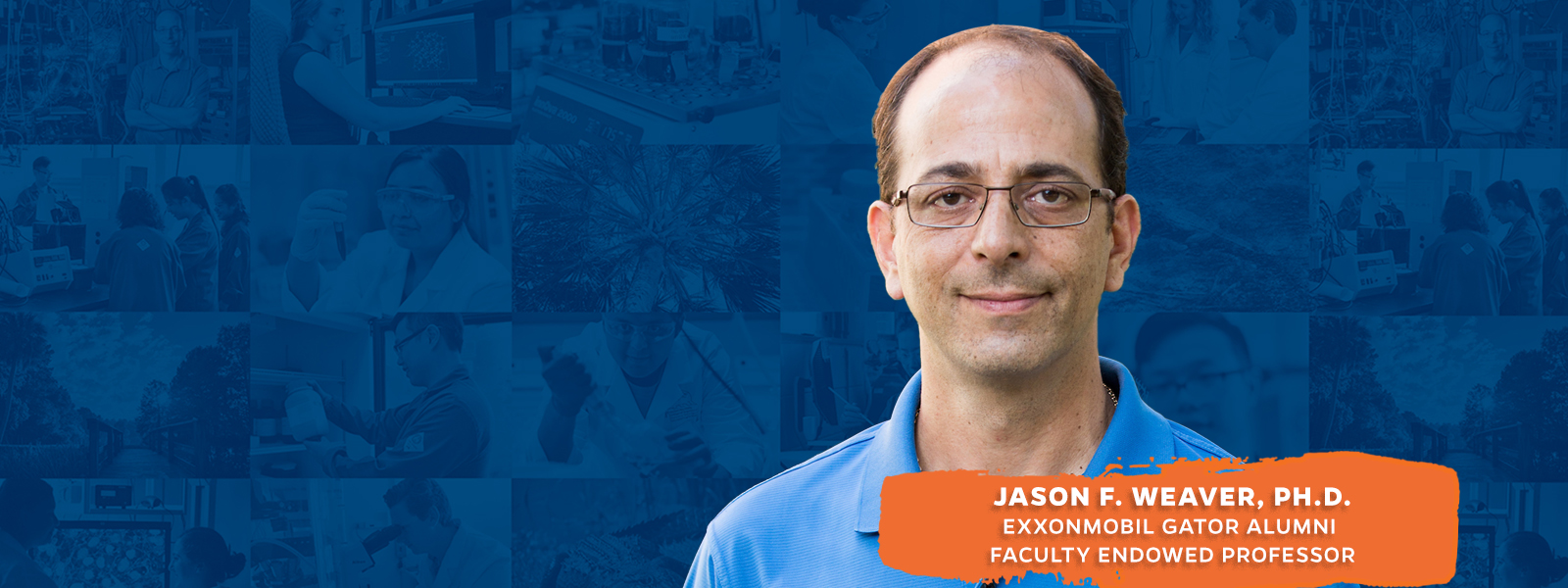Jason F. Weaver, Ph.D., the ExxonMobil Gator Alumni Faculty Endowed Professor at the University of Florida Department of Chemical Engineering, has received a National Science Foundation (NSF) grant to study selective methane oxidation using elaborately structured IrO2-based mixed metal oxides.
In this project, Dr. Weaver will collaborate with UF ChE researchers Helena Hagelin-Weaver, Ph.D., an associate professor, and David Hibbitts, Ph.D., an assistant professor and holder of the Moreno Rising Star Professorship, to develop a fundamental understanding of the selective conversions of methane to more valuable chemicals using well-defined oxide catalysts.
“Designing catalyst structures with atomic-level precision is an important step toward efficiently and selectively converting methane to chemicals. In our new project we are trying to synthesize catalysts with small amounts of Ir dispersed throughout a less reactive host oxide. Our guiding hypothesis is that atomic scale Ir-O moieties will be able to efficiently break the first C-H bond(s) of CH4 but that the lower reactivity of the host oxide will suppress extensive oxidation and instead enable the resulting hydrocarbon groups to undergo partial oxidation or coupling to value-added products,” said Dr. Weaver.
Currently, direct catalytic processes to convert methane to chemicals are scarce and unsuitable for commercial use. The main difficulty is that most catalytic materials must operate at high temperatures to initiate chemical conversions of methane, however milder conditions are needed to direct the subsequent chemistry toward desirable products.
“Developing efficient catalytic processes to transform methane, the primary component of shale and natural gas, to more valuable products is a grand challenge for the chemical industry and would have significant economic and environmental benefits,” said Dr. Weaver. “The availability of new and cost-effective methane-to-chemicals processes could encourage the use of shale and natural gas as a chemical feedstock rather than a combustion fuel, thereby reducing greenhouse gas emissions and assisting in a transition toward renewable energy.”
This award will provide opportunities for high school and undergraduate students to participate in their research and focus on recruiting students from underrepresented groups to engage in these activities. The project also involves a collaboration with faculty in the Chemistry Department at Brookhaven National Laboratory. For a couple of weeks each year, UF students will work in the labs of Drs. Sanjaya Senanayake and Jose Rodriguez at BNL to conduct sensitive spectroscopic measurements of catalytic methane oxidation.
The Weaver Group focuses on advancing the understanding of reactions occurring on solid surfaces on a molecular level. Such reactions are fundamental to heterogeneous catalysis and semiconductor processing yet remain poorly understood at the molecular level. They investigate surface chemical reactions using analysis methods based on ultrahigh vacuum (UHV) surface chemistry and physics as well as in situ techniques.

